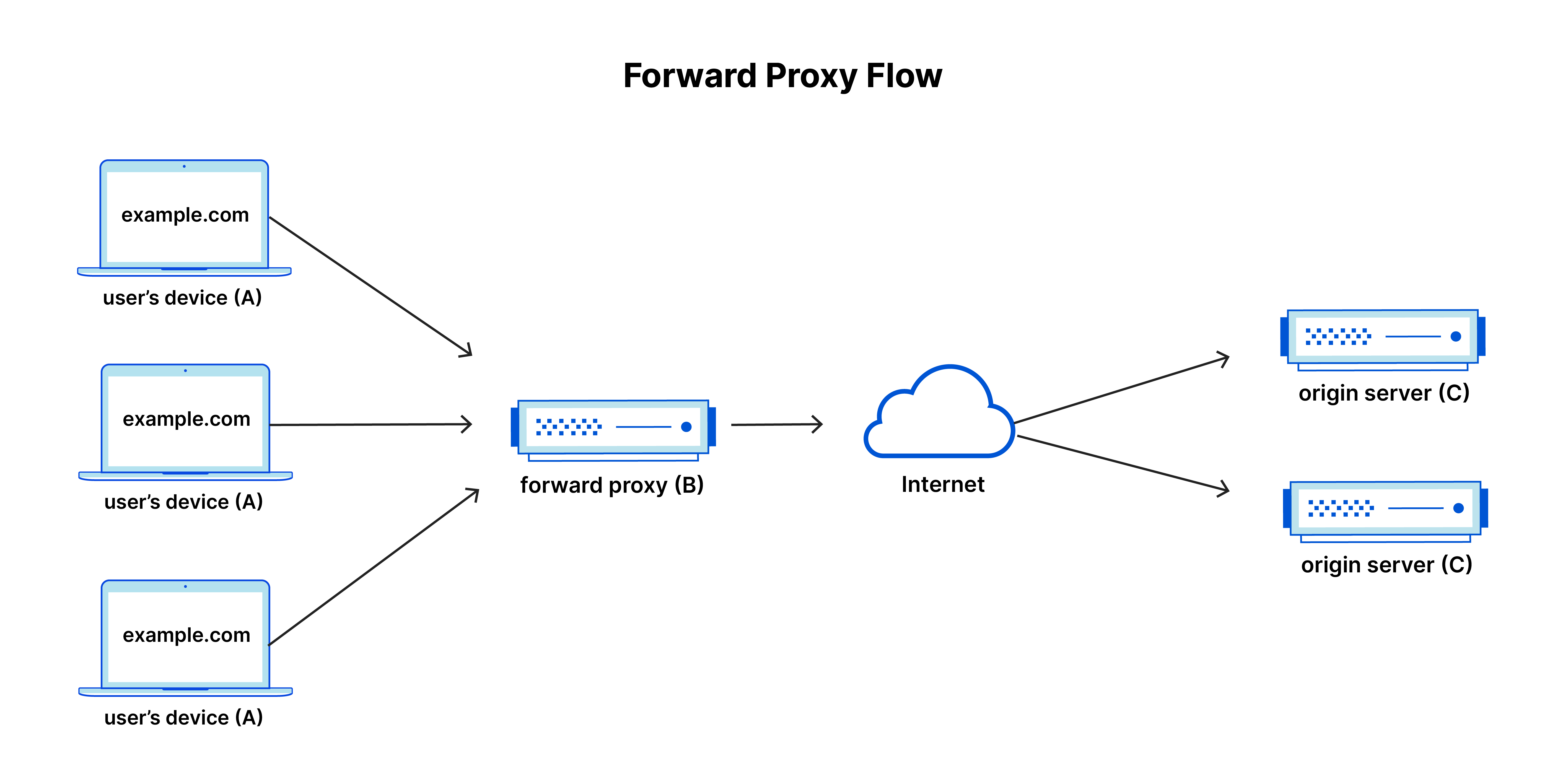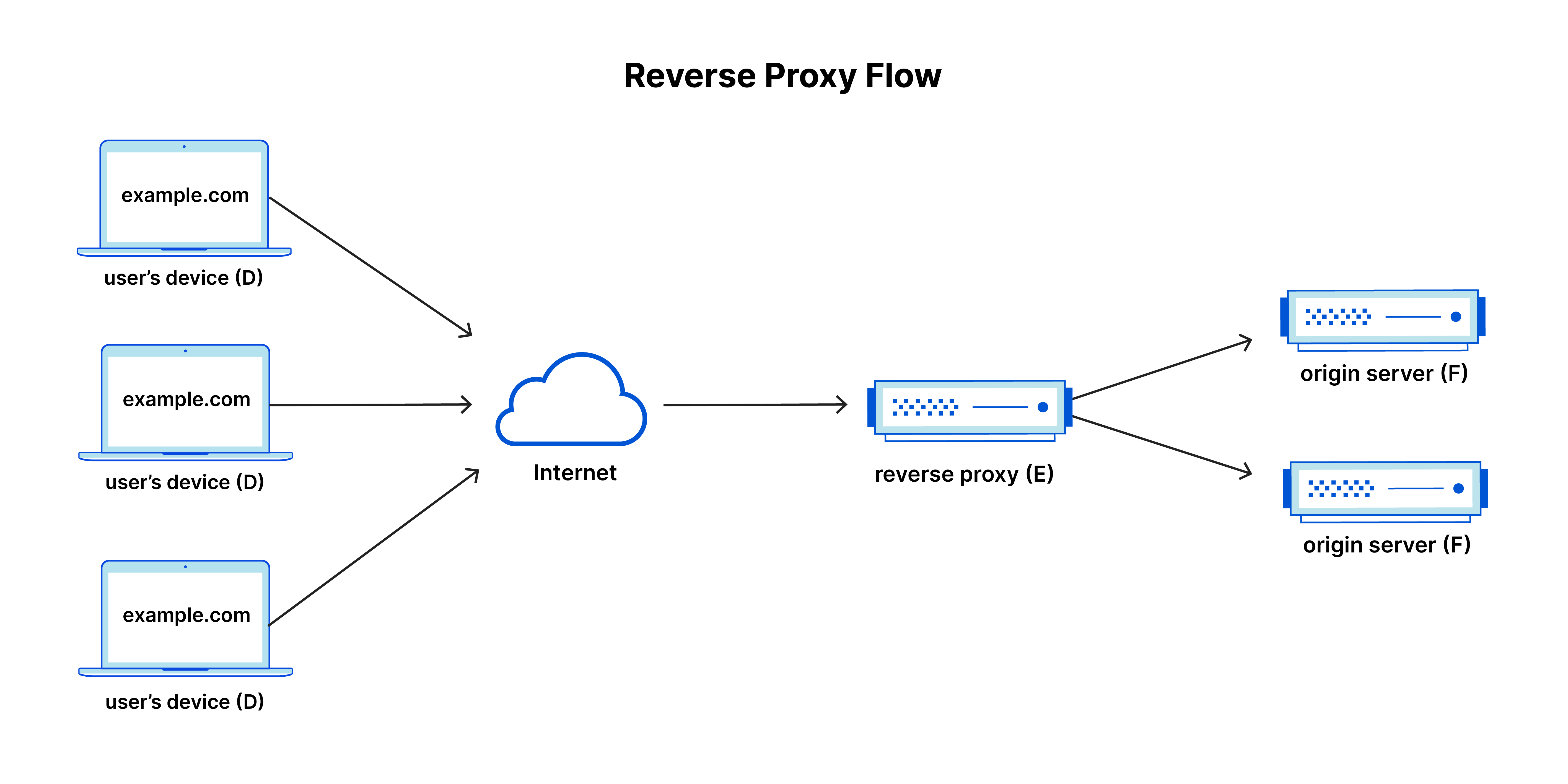Proxy Server
Proxy acts as an intermediary between clients and servers. When you use a proxy, your requests to access websites or online services do not go directly to their destination. Instead, they first pass through a proxy server, which processes and forwards your requests to the intended destination. This intermediary server can provide various services and functionalities that enhance or modify your internet experience.
How Does a Proxy Server Work?
- Request Initiation: You send a request to visit a website from your device.
- Porxy Server Interception: The request is intercepted by the proxy server before reaching the destination.
- Request Forwarding: The proxy server forwards your request to the target website or service.
- Response Reception: The target server processes your request and sends a response back to the proxy server.
- Response Delivery: The proxy server receives the response and forwards it back to your device.
By acting as an intermediary, the proxy can modify, encrypt, or log traffic, providing various enhancements and controls over network traffic.
Why Use a Proxy Server?
Proxies serve several important purposes in networking:
- Anonymity: Proxies can mask your real IP address, making it difficult for websites to track your online activities. This helps protect user privacy and can prevent targeted advertising and tracking.
- Access Control: Organizations use proxies to enforce policies and control access to specific websites. This can be particularly useful in workplaces or educational institutions to prevent access to non-work-related or harmful content.
- Improved Security: Proxies can act as a firewall, filtering out malicious content and preventing direct access to your internal network from the internet. This adds a layer of security against cyber threats and unauthorized access.
- Caching: Proxies can store copies of frequently accessed web pages. This reduces load times and bandwidth usage by serving cached content to users, rather than retrieving the same information repeatedly from the internet.
- Bypassing Restrictions: Proxies can help bypass geo-restrictions or content filters imposed by websites or governments. By routing your traffic through a proxy server in a different location, you can access content that may be restricted in your region.
Types of Proxies
- Forward Proxy: This is the most common type of proxy server, positioned between the user and the internet. It forwards requests from a client to various servers across the internet.

Forward Proxy Flow, image source: Cloudflare
- Reverse Proxy: Unlike a forward proxy, a reverse proxy sits in front of web servers and handles incoming requests from the internet. It provides services such as load balancing, web acceleration, and SSL encryption.

Reverse Proxy Flow, image source: Cloudflare
Enjoy Reading This Article?
Here are some more articles you might like to read next: